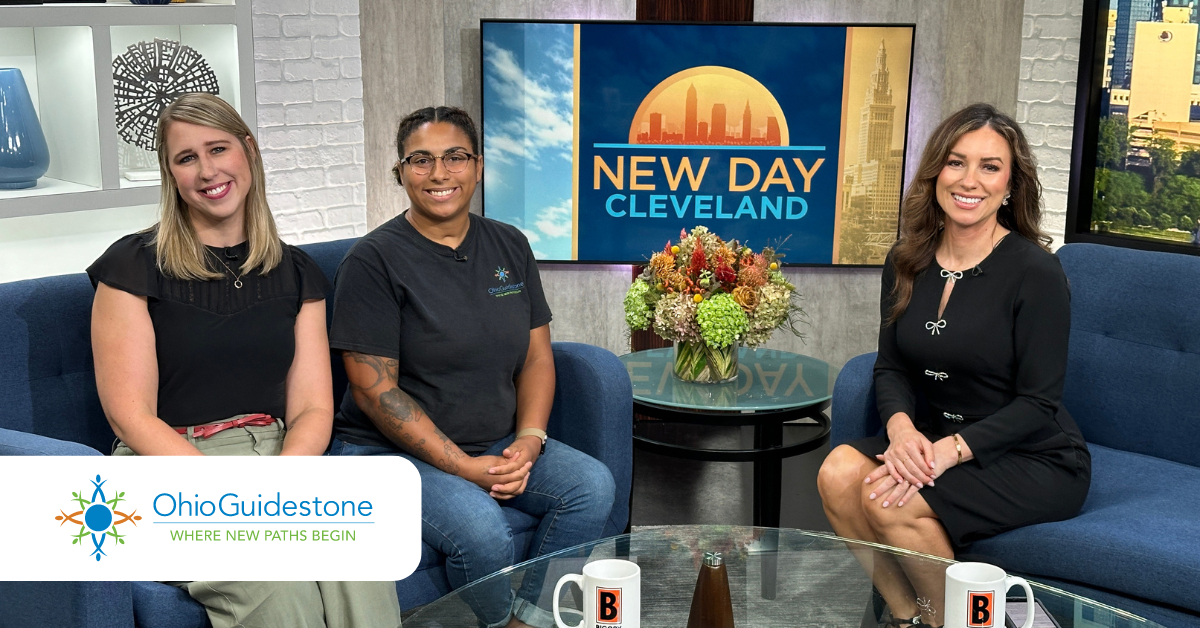Maternal Depression, Not Just the Baby Blues
Maternal Depression is clinically known as Perinatal Mental Health Disorders (PMHD).
PMHD is actually the correct term to use when talking about mental health support for women who are pregnant or postpartum because it more accurately represents the condition. PMHD has also been referred to as postpartum depression or “baby blues,” but neither are used clinically.
The language has changed because we have a better understanding of the wide range of mental health symptoms a woman can experience during this time in her life.
PMHDs cause significant symptoms and impact a woman’s functioning during pregnancy or postpartum. These symptoms include extreme sadness, irritability, lack of attachment with the new baby, anxiety, difficulty with sleep, and thoughts of harm to yourself or your baby. These symptoms can lead to a diagnosis of Depression, Anxiety, and Psychosis.
What You'll Learn

What is Perinatal and Postpartum Depression?
15%-20% of women experience clinical depression while pregnant or postpartum.
One in five women experience symptoms of depression, but some still face stigma regarding their mental health needs during this time period. Many women can feel that it is their fault, experience guilt and shame if they are struggling with attachment with their child, or if they feel unhappy.
What is Perinatal and Postpartum Anxiety?
Up to 11-12% of women experience anxiety and panic during pregnancy and postpartum.
Symptoms of anxiety can feel like constant worry, racing thoughts, sleep disturbances, hyperactivity, and physical symptoms like nausea. The symptoms of anxiety can be specific to worries about the baby, it can also be generalized anxiety of feelings of panic about issues outside of their infant’s well-being.
What is Postpartum Psychosis?
Postpartum psychosis is rare, impacting about .1-.2% of women giving birth.
However, the onset can be sudden, and women can have delusions, hallucinations, or experience a break from reality. It is important for those experiencing these symptoms to get help immediately.
A common misconception of PMHDs is that mental health symptoms are only due to a change in hormones and if a physiological change is made, then the symptoms will resolve.
In reality, PMHDs can happen for a variety of reasons and impact women at different stages of their pregnancy or postpartum journey.
The Motherhood Journey
No one tells you that it’s not just a baby that is born in this moment, but a mother too.
Motherhood is one of the greatest transitions in a woman’s life that causes change for a woman in a bio-psycho-social-spiritual way. As part of this Motherhood Journey, women begin to develop a new sense of identity. They are determining who they are and who they want to be, as a mother.
With the birth of Motherhood comes the loss of the previous identity.
For some, this can be an exciting and long-awaited identity shift. For others, this comes with feelings of loss and grieving of their old self. This can even be seen as a “death” of their old self.
There is the loss of control, struggle of surviving the exhaustion of the early weeks and months of infanthood, and development of their new identity.
Like any period of transition, it is full of questions:
- What Kind of Mom do I want to be?
- What makes a good Mom?
- How will this impact my career?
- How will I socialize?
- Do I have supports?
- What if I lose friends?
In addition, to this identity transition, Moms are looking to their support systems and motherhood models as they grow into their new selves. This can bring up a new range of emotions. Some new moms have lost their own moms and now are grieving their mother’s absence with their birth into motherhood. Other moms may lack a strong maternal model and struggle with determining how to parent or wanting to parent differently than they were. Motherhood can open old wounds from childhood as a mom explores her past through the eyes of new motherhood.
PMHDs have a variety of causes but they can be treated.
OhioGuidestone offers a range of options to support pregnant and postpartum moms on their Motherhood Journey.
Maternal Depression Services
Our maternal depression program offers a mental health screening and assessment to pregnant and postpartum moms. The clinician will use these tools to offer the appropriate services to each individual.
Therapy
Our licensed clinicians are trained to support and empower pregnant and postpartum moms. They have an understanding of PMHDs such as depression and anxiety. They provide counseling to not only support the mom but to help promote mother-child bonding with infants, toddlers, and young children. Our clinicians also support moms with substance use disorders. We serve moms who need support in continuing their recovery journey and moms who need support overcoming the challenges of substance use. These clinicians can also help link moms to supports and other community resources. Counseling services can be provided in the office, over telehealth, or in the home in order to break down barriers like finding a babysitter or transportation.
Peer Support
A peer supporter is a unique role in which our peer has lived experience with mental health and substance use disorders and is also a mom. This peer is trained in supporting moms in their own mental health or substance use recovery journey and models their recovery process. Our peer supporter helps create support systems, advocates, empowers, and helps moms to create their own individualized goals.
Psychiatry
Medication may be a part of needed treatment for pregnant and postpartum moms. Medication during pregnancy can be scary as there is still a lot of stigma. Our psychiatric providers are trained to address prenatal depression, postpartum depression, postpartum psychosis, and substance use disorder for women during pregnancy and up to one year following birth.
OhioGuidestone Can Help
Motherhood is a time to experience joy and bonding with a new baby. OhioGuidestone has treatment and programs to help new mothers find the joy they are missing. Sometimes the most courageous act is to ask for help. Reaching out is the first step to becoming a happy, healthy mom with a baby who can thrive and grow within a happy childhood.

Nicole Klimas-Morrison MSW LISW-S CDCA is OhioGuidestone’s Director of Community Counseling in Lorain and Erie Counties.
Warning: Undefined variable $author_photo in /var/sites/dev.ohioguidestone.org/wp-content/themes/ohgs2022/single.php on line 74
Warning: Undefined variable $author_job_title in /var/sites/dev.ohioguidestone.org/wp-content/themes/ohgs2022/single.php on line 74
Warning: Undefined variable $author_credentials in /var/sites/dev.ohioguidestone.org/wp-content/themes/ohgs2022/single.php on line 74
Warning: Undefined variable $author_bio in /var/sites/dev.ohioguidestone.org/wp-content/themes/ohgs2022/single.php on line 74


